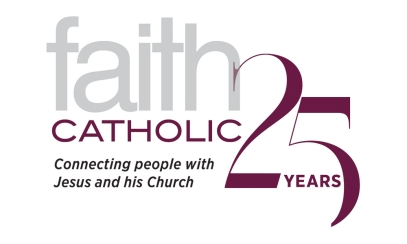Where is home?
It happened a number of years ago at Easter-time, before I had entered seminary. As the evening of dinner and visiting with family began to draw to its close, I said, “I think I’ll go home now,” intending to return to my apartment in Ypsilanti. My mother, looking pained and somewhat indignant said, “This is your home,” meaning my parents’ home in Saginaw. Oops.
By “home” I meant the place where I was living at the time. By “home” my mother meant the place where she and my father had raised a family. I had just finished college and was working at my first full-time job in Ann Arbor. I was enjoying a new level of freedom and responsibility that came with living in the work-a-day world. The apartment in Ypsilanti felt like the first place that was my own – not student or campus housing. I had my pictures on the wall and other touches that made it into the comfortable place that I called home – just not the home in which I had grown up. As a family we crossed a kind of threshold that evening, as I returned to my home, leaving with a new appreciation for my parents’ home.
All of us need a place we can call home. For some, that will always be the home in which they grew up, a place filled with childhood memories. For others, home will be the place where the roots of independence are planted – the place where they hang their hat, so to speak. In either case, home provides us with a sense of security and familiarity. It can be the place of peace and quiet to which we retreat after a long day’s work, or it can be the place that is filled with the energy and activity of living and loving daily. All of us long for a home.
Our parish communities can serve as a home for all of us. During the seasons of Lent and Easter, some will come to church knowing they fit right in, having been a regular part of the place for so many years. Others will approach coming home to church from a different perspective, one of caution or even wariness. For some, a parish church has not felt like home for too long. At some point, something was said (or not said) or something was done (or not done) that opened a rift. The rift eventually grew to become an empty seat or an empty pew. If that is the case, we need to find ways to heal that rift, to encourage those who feel distanced for one reason or another to return home, to reclaim the seat or pew that is rightfully their own.
If you have been hurt by the action or inaction of someone at your local parish, please accept my apology. Perhaps you caught someone having a bad day. Perhaps words were said that were understood in a sense other than that in which they were intended. The Church can have a painfully human side at times. Please do not let that human side obscure the divine or stand in the way of returning home during these sacred seasons.
In other cases, some may simply be new to a particular parish community, and may not yet know the “ins and outs” of that particular place. It’s up to all of us to help them feel at home. Yes, it’s easier to sigh, sneer or snicker, but that’s hardly Christ-like. It may be more challenging or time-consuming to offer a few words of kindly welcome and ask someone their name or assist them to find the person or place they’re looking for. It means we need to momentarily move out of our place of comfort in order to invite someone to find comfort. I believe that effort is well worth our time, our energy and our prayer.
All of us long for a home, especially during these sacred times and seasons. Each of us can play a part in helping one another on the way home. And so our journey in FAITH continues.



